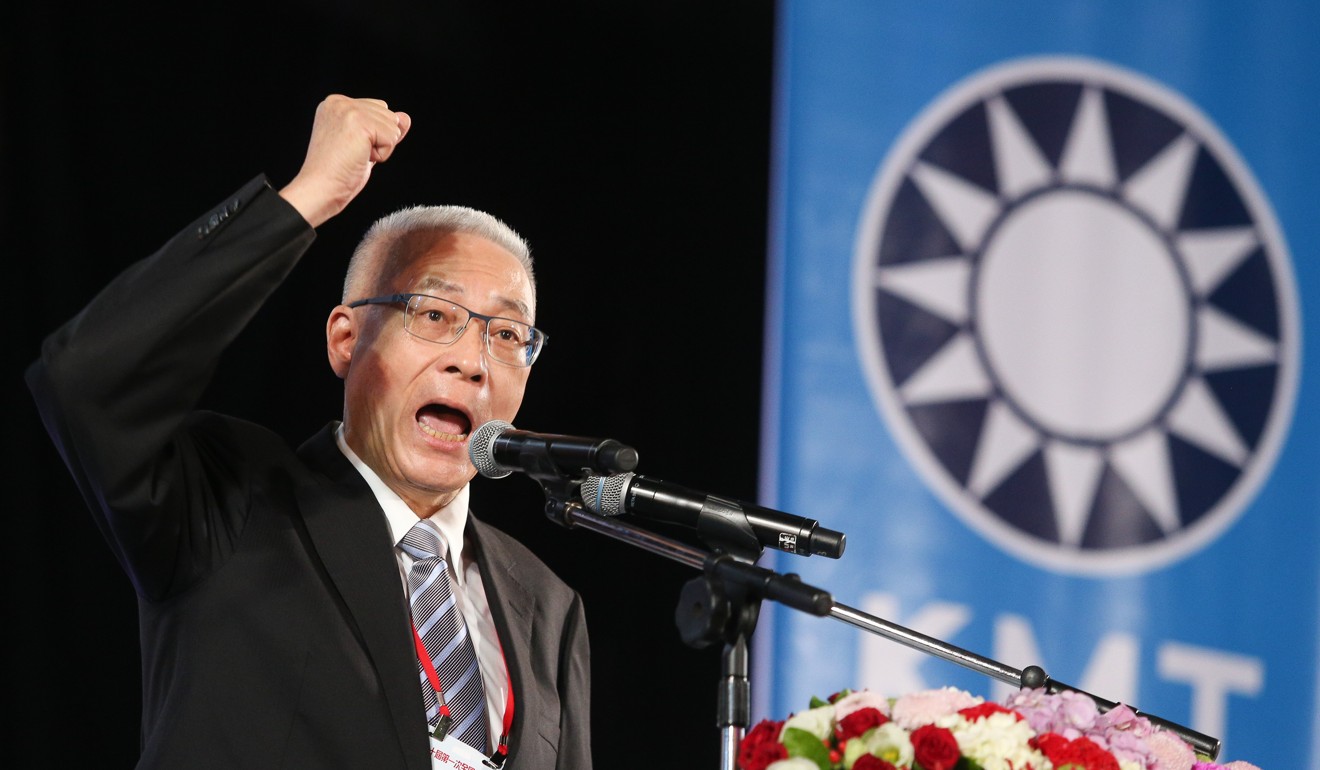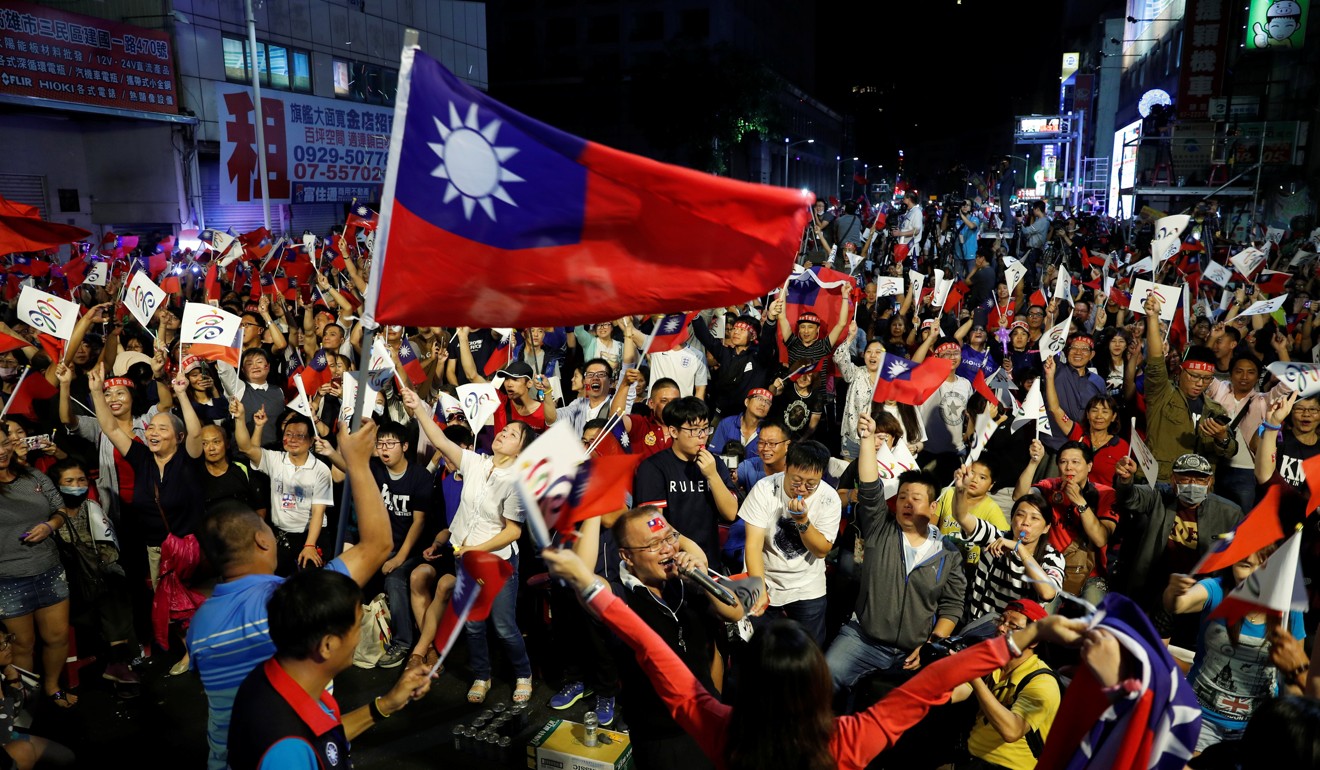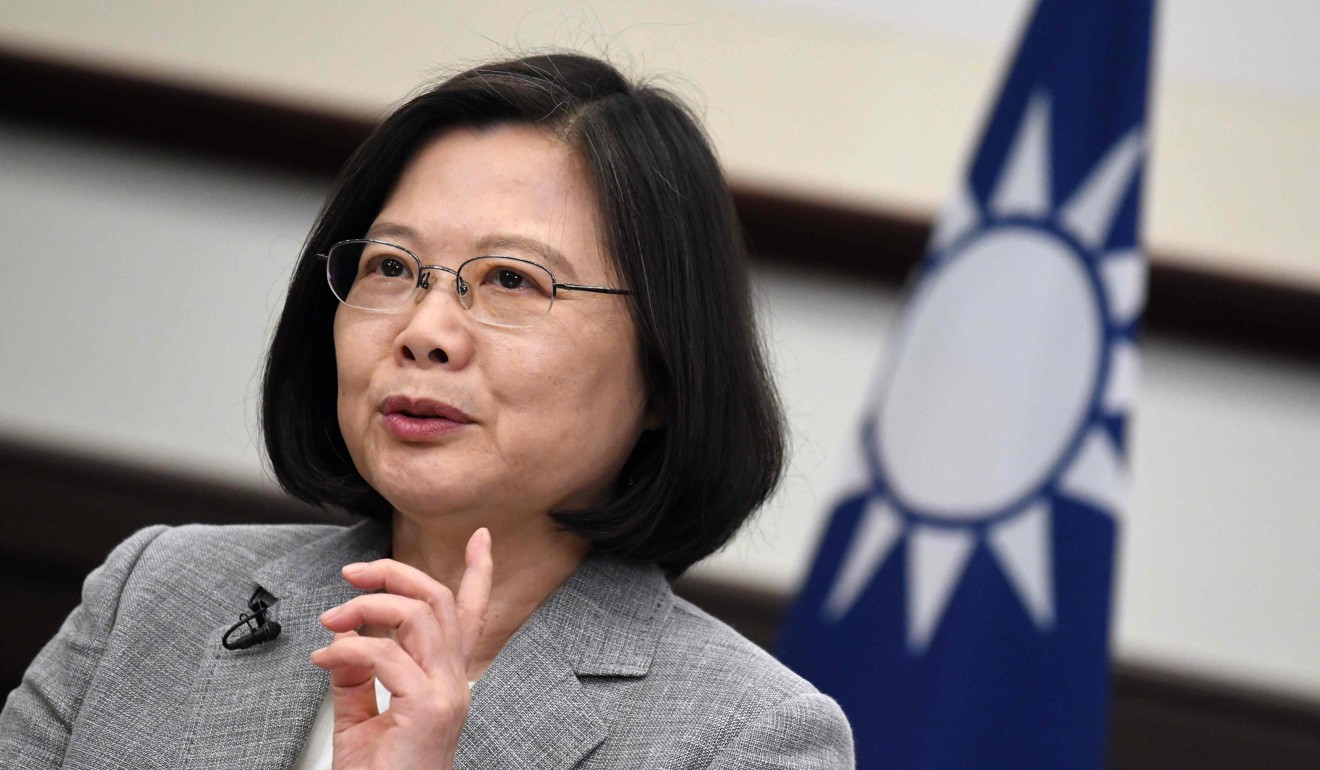
Taiwan presidency in KMT Eric Chu’s sights but it’s a long way to 2020
- Popular mayor of New Taipei City steps down and wastes no time in starting his election race
- Analysts identify at least five major obstacles he must overcome
Taiwan’s Kuomintang bigwig Eric Chu has announced his intention to run for president in 2020, but analysts believe there are at least five major hurdles in his way.
Chu, 57, stepped down as mayor of New Taipei City on Tuesday, after serving the maximum two four-year terms, and said he would immediately begin an island-wide tour to better understand public opinion and to seek solutions for Taiwan’s problems.
“My goal is clear, which is to fight for Taiwan in 2020,” he said when asked about his next step.
Analysts said Chu, who lost the 2016 presidential election to Tsai Ing-wen, was not the only KMT aspirant to the top post.
They pointed out that a number of party heavyweights had been boosted by the KMT’s landslide victory in last month’s local government elections, and were looking towards the 2020 polls with renewed confidence.
Taiwan election lost on local issues, not relations with mainland
The unexpected win saw the KMT take control of 15 of the 22 local cities and counties, including Kaohsiung – traditional stronghold of the pro-independence Democratic Progressive Party.
It was a remarkable turnaround, following the mainland-friendly KMT’s humiliating defeat in the 2014 local government polls, followed by Chu’s loss to Tsai in the presidential race of 2016.
But for Chu to have a chance of regaining the self-ruled island’s top post, he needs to start by overcoming the first and most important hurdle – the KMT primary for the presidential elections, expected to be held between March and April next year.
“We respect the decisions of any qualified KMT members to express their intent to run for the post, but they need to take part in the party primary and win the presidential nomination,” said Hung Meng-kai, deputy director general of the KMT’s culture and communications committee.

Other KMT heavyweights with an interest include incumbent chairman and former vice-president Wu Den-yih, and former speaker of the legislature Wang Jin-pyng.
Wang, with his strong influence in two major political cliques in Kaohsiung, was key to the recent win in the southern municipality’s mayoral race by KMT candidate Han Kuo-yu – who surprised his own party with his victory in what was regarded as an unwinnable election.
Taiwan media reports have even suggested that former president Ma Ying-jeou may be considering a run because of his growing popularity in the past two years.
If he can win the KMT nomination, Chu must also do all he can to boost his popularity and influence, without the advantages of heading a local government or holding any party position, analysts said.

“Of all the KMT aspirants, Chu is the most popular so far, according to public opinion polls, but such popularity builds on the fact he was rated as one of the best mayors and that he is the youngest among all KMT aspirants,” said Wang Kung-yu, professor of political science at Chinese Culture University in Taipei.
Now that he has stepped down as mayor, he no longer enjoys any government power and is away from the KMT power core, making it difficult for him to compete with Wu or Wang, both of whom have support from either the KMT central or local factions, Wang said.
“This explains why Chu declared his bid right after he stepped down and announced an island-wide tour to garner support, and the establishment of an office so that the news media will continue to report about him,” Wang said.
According to local news media, Chu intends to visit the United States in March after his island-wide tour, where he will face his third hurdle in his bid for power in 2020.
Two reasons Taiwan must come to terms with China, despite mixed signals from the electorate
“Any KMT presidential hopeful must be able to convince the US that the KMT is merely friendly to the mainland rather than siding with the mainland,” said KMT legislator Johnny Chiang who recently returned from a visit to the US.
Chiang said Washington had mistakenly regarded the KMT’s victory in last month’s local polls as a victory for Beijing.
“This is a very dangerous signal to the KMT, which must have a thorough and comprehensive view and theory to tell the Americans about the KMT’s position in US-Taiwan-mainland relations,” Chiang said.
During the local elections, Washington had strongly backed the Tsai government in its accusations that Beijing was spreading misinformation to try to disrupt the outcome.

Chu’s fourth hurdle is to persuade the Taiwanese public that he can manage cross-strait relations effectively.
Hung Yao-nan, president of Taiwan Asian Network for Free Elections, said any presidential hopeful must be able to convince the public of their ability to deal with Beijing or face continue suppression from the mainland – a grim situation the Tsai government has faced but can do little to offset.
Since taking office in 2016, Tsai has refused to accept the 1992 consensus, an understanding which allows the two sides to continue to talk as long as they agree there is only one China, though either side may have its own concept about China.
Beijing, which considers Taiwan a wayward province awaiting reunification, if necessary by force, has suspended official talks and exchanges with Taiwan, staged a series of war games around Taiwan to put pressure on Taipei, and poached five of the island’s diplomatic allies.
The impact of Beijing’s stance towards the Tsai government has been seen as a factor in the self-ruled island’s poor economic performance, and a contributor to the KMT’s landslide victory in the local polls.
Analysts said Chu’s final hurdle was a need to convince the public he could do better at managing the economy than Tsai if elected, especially after he lost at least 3 million votes to her in their last contest, in the 2016 presidential elections.

